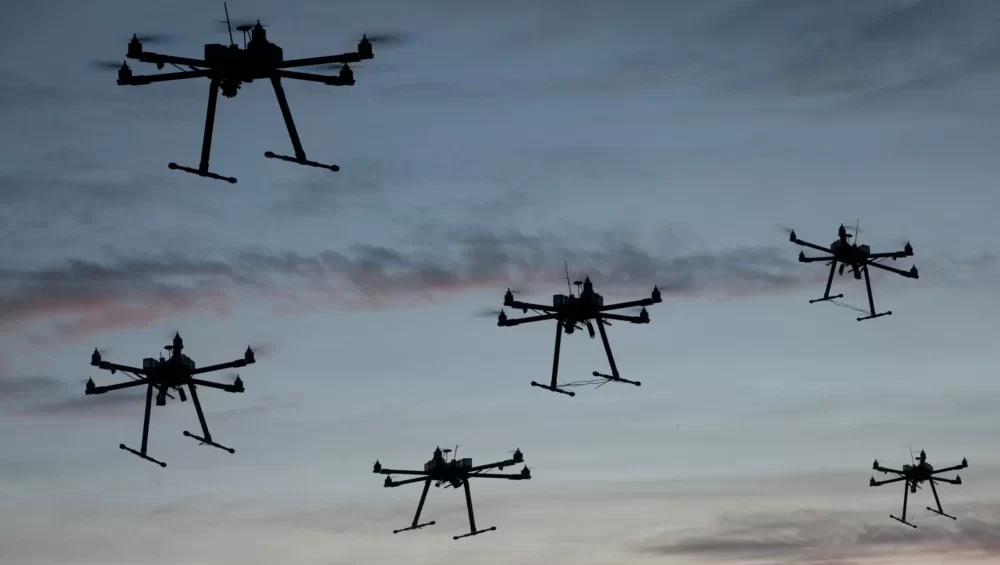The US military has been using artificial intelligence (AI) to power small-sized surveillance drones in special operations forces’ missions to help Ukraine in its conflict with Russia. These special drones are capable of monitoring soldiers’ fitness, forecasting Air Force plane maintenance needs, and surveilling adversaries in space.
But now the Pentagon is pushing even more AI into its weapons with plans to deploy several thousand cost-effective, expendable, AI-enabled autonomous vehicles by 2026 to stay competitive with China.
According to the Deputy Secretary of Defense, Kathleen Hicks, this ambitious project is called ‘Replicator’ and it aims to accelerate the slow transition of U.S. military innovation toward utilizing small, intelligent, cost-effective platforms on a large scale.
Details about the Replicator project, including its funding, are currently unknown, but it is anticipated to expedite crucial decisions regarding the maturity and reliability of AI technologies suitable for deployment, including on weaponized systems.
Pentagon officials, industry experts, and scientists believe that the US will eventually be able to possess fully autonomous lethal weapons within the next few years. Not only that but experts also believe that eventual advancements in data processing speeds and machine-to-machine communications will put humans in supervisory roles in the future, though officials insist that humans will remain in control.
This transition is particularly evident with the anticipated deployment of lethal weapons in drone swarms. Numerous countries, including China, Russia, Iran, India, and Pakistan, are actively developing such technologies though none of these nations have committed to a US-initiated pledge to use AI responsibly for military uses.
This Pentagon project underscores how the rapid development of AI is going to reshape how wars are fought in the future. It also highlights significant technological and personnel challenges in Pentagon procurement and development.
Gregory Allen, a former top Pentagon AI official now at the Center for Strategic and International Studies think tank said: “The Department of Defense is struggling to adopt the AI developments from the last machine-learning breakthrough.”
The Pentagon is currently working on over 800 AI projects, all of which are in testing as of now. These projects mainly involve machine learning and neural networks to help humans gain intel quicker and better than before.






